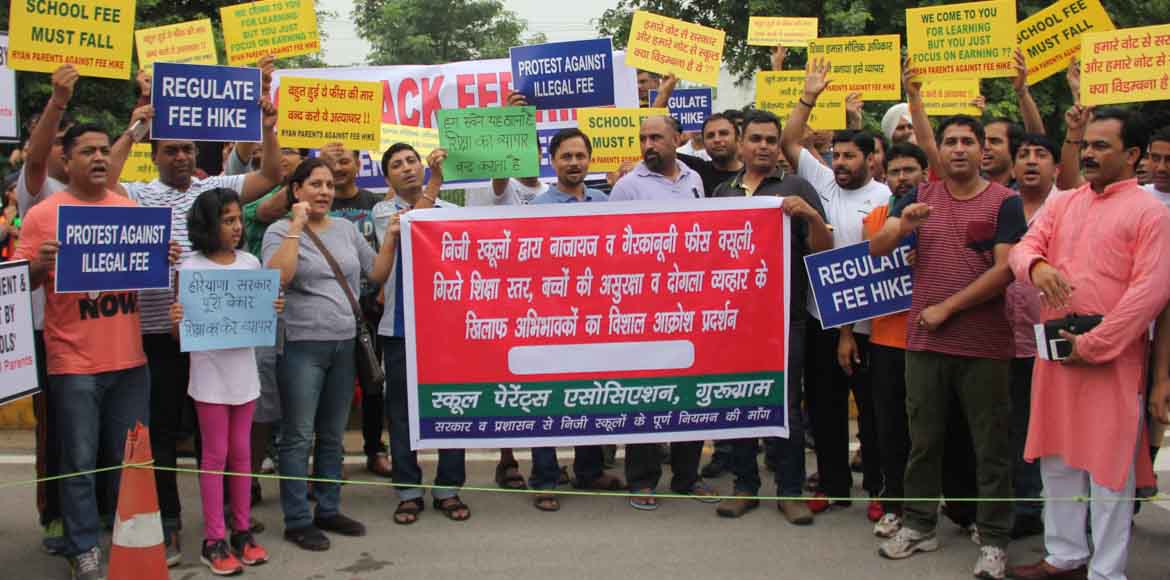
By Madhusudan Raj
Many parents in different states of India, including the state of Gujarat which is my home state, are right now agitating against private schools (sic) for higher fees (see here, here and here). Troubled about the rising cost of their children’s schooling many of these parents are asking the government to control the fees of these schools. The question here is: is this the right way of achieving their goals of lower fees school education? Let us see.
Why School Fees are High?
A basic understanding of the demand and supply analysis will throw light on this question. Education is a scarce economic good just like any other such good like apple or orange that is trading in the market, and consequently its price (fees) is also determined by its demand and supply forces just like prices of apple and orange. In the education market parents and children are the consumers who are demanding education services and schools are the suppliers of those services. The price of education will be higher if the supply of schools is lower than the given demand for it (see graph 1 below) or if the demand for it is higher than the given supply of it. In India the supply of educational services (schools/colleges/universities etc.) is lower compared to the given demand for it.

Now the question arises that, why the supply of educational services is lower in India? The answer is simple: Government monopoly of the whole Indian education sector. The state and central governments in India fully control and regulate the education sector. The government education czars decide how many schools/colleges/universities etc., will open in the country. They decide what these schools will teach and in what manner. They decide who will get admission and who will not. In short, from A to Z of education is determined by these government educational bureaucratic administrators. And anyone who has studied basic economics knows full well that the prime characteristics of any monopoly system are two: 1) lower supply, and consequently 2) higher prices!
So the reason why these private schools can charge higher fees (price) is because there is lack of competition in the education sector because of government imposed monopoly. The price of schooling is higher because the supply of school is less compared to its demand. And the root cause of this shortage of supply is the monopoly regulation of the government of the education sector. The licensing system of the government gives monopoly power to these licensee schools. Under this government monopoly system parents do not have many choices.
What is the Solution?
The only solution of this problem then is to end the government monopoly over the education system. The government must end its control and regulation of education sector and free it for market competition. Once the sector becomes open and competitive, meaning no licenses required for starting your school/college/university, many more new educational institutions will open in the country in turn increasing the supply which will reduce the fees drastically. Not only competition will drive down the price (fees) of education, but it will also improve the quality of education giving more choices to parents for whatever kind of education they want to give to their children unlike present government socialized system where all children are reduced to same level of mediocrity and dumbness.
Conclusion
The fundamental mistake those parents are making is looking for a solution of their problem in a system that itself is the root cause of their problem! Instead of asking the government to control the fees of schools they should be demanding the government to end its monopoly of education system.
Author Info: Madhusudan Raj is an Austrian School economist and an Anarcho-Capitalist thinker. He works as an Assistant Professor of Economics at the Department of HRD, Veer Narmad South Gujarat University, Surat.
